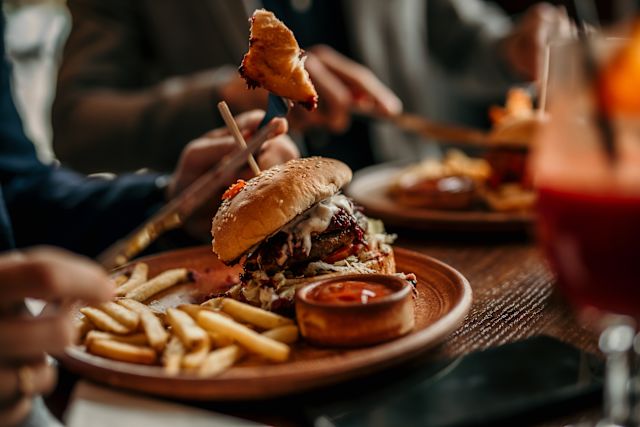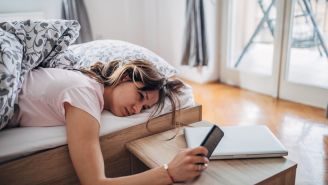Updated on November 18, 2024.
It happens to everyone at some point: You can't sleep. And when you finally drop off, the alarm buzzes about 10 seconds later. Then, you have problems getting out of bed. You end up late for work and drag through the day, foggy, moody, and unable to focus.
From anxiety to pain to perimenopause, there are endless reasons we might not be able to fall asleep or sleep through the night. Some of these underlying issues can create long-term sleep problems, affecting your overall mental and physical health. Feeling better and sleeping well may require time, lifestyle changes, and help from a healthcare provider.
But there are some causes of sleeplessness you can address today, right now—like what you eat.
Foods that can disrupt sleep
The foods we choose during the day can have a big-time effect on our ability to sleep at night. With that in mind, consider limiting or ditching the following snacks, meals, and drinks in the hours before bedtime.
Spicy foods
Whether it’s wasabi, chiles, or a liberal dose of cayenne pepper, intense spices can keep you up at night in a few different ways. They can:
- Cause heartburn or indigestion
- Worsen sleep apnea, a condition that disrupts breathing when you’re sleeping
- Raise your core body temperature, which may make it difficult to cool down enough for sleep
Large meals or meals high in saturated fat or protein
Food takes time to digest—especially foods that contain a lot of saturated fat or protein. When you go to sleep, your digestive system slows down. This can lead to gas, heartburn, and a lot of general discomfort. So, if you know you’re going to have a large or heavy meal, try to schedule it earlier in the day. Then, in the evening, stick to a smaller, lighter dinner.
Alcohol
Having a glass of wine can make you feel drowsy. But it can also disturb your ability to sleep later on, leading to restlessness, waking up in the middle of the night, and an inability to get back to sleep.
While drinking in moderation with dinner may not mess with your sleep schedule, it’s wise to avoid drinking in excess or too close to bedtime. “Moderation” means no more than one drink each day for women and two for men.
Caffeine
You may know not to drink coffee right before turning in for the night. You understand that the caffeine can keep you awake and alert when you’re trying to doze off. But you might not know that caffeine can linger in your body for 10 or 12 hours. That means your mid-afternoon mug can lead to tossing and turning well into the evening.
So, if you’re having sleep troubles, cut yourself off at least six hours before your bedtime. Look out for the caffeine in other foods and drinks, too. That includes:
- Tea
- Sports and energy drinks
- Soda
- Chocolate
A note on mealtimes
While what you eat matters for quality sleep, when you eat can also play a big role. To help adults get the recommended seven to nine hours of sleep each night, many experts recommend trying to stop eating two to four hours before bedtime. And if you do eat during those hours, keep your foods and drinks on the lighter side.
Another wise idea: Eat breakfast, lunch, and dinner around the same time every day. Go to bed and wake up at the same basic times, too. This can help your body get accustomed to a schedule, making it easier to fall and stay asleep.







